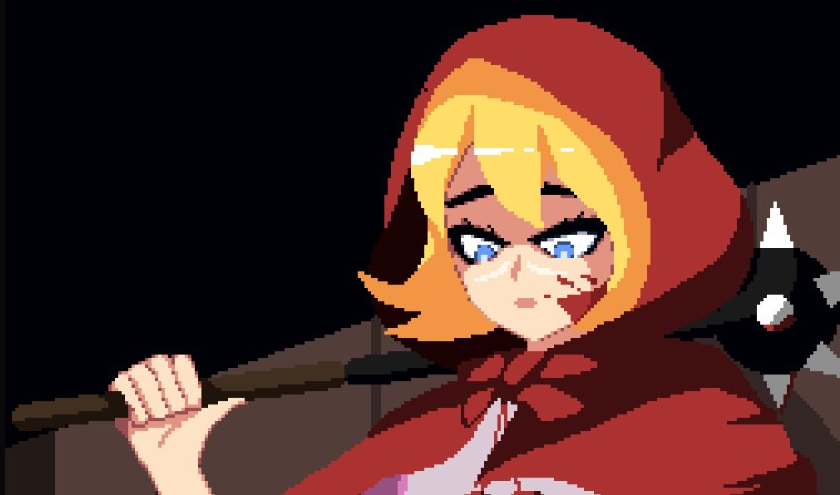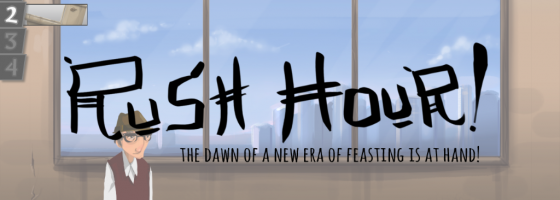
For almost a decade, AAA publishers the world over have talked about representing queer folks like myself in their video games. We get written in as NPCs or authored protagonists, and it’s increasingly rare to see any open-world title that doesn’t let your create-a-character girl date another girl. But let’s face it: 99.9% of these games offer the shallowest interpretations of us imaginable! When we’re not appearing as a marketing bullet point for the latest character-driven shooter, we’re given a polished, dehumanizing sheen, or get depicted as eligible contestants for the orc-slaying bachelor of a player-character. Somehow, trans characters have it even worse: we’re the butt of jokes and used for shock value, but if we’re lucky, we’ll get to perform A Very Special Episode, where we read out facts about our life like a cereal box, purely for the edification of the assumed cishet player.
As is often the case, I’ve found that indies are the only ones you can trust when it comes to true representation. I first stumbled on npckc’s One Night, Hot Springs for a podcast in 2018, and as a trans woman who had only been out for two years, playing through a vignette of another trans woman’s life left a profound impact on me. Navigating a stressful trip as Haru often felt like I was looking in a mirror: I was all too familiar with the fear that comes from visiting a space for other women, desperately hoping that I wasn’t causing a problem for friends by being myself, even going as far as minimizing my presence whenever possible. But like my own closest circles, Haru’s longtime friend Manami (and newer, more obstinate friend Erika) knew how to include her, prodding her along into situations they knew she’d enjoy.
I didn’t know it at the time, but One Night, Hot Springs would eventually turn into a trilogy, with Last Day of Spring and Spring Leaves No Flowers letting us spend time in Erika and Manami’s shoes. As of last month, all three visual novels were bundled into A Year of Springs, including an epilogue that wraps the collected stories in a neat little bow. When I sat down to play through the Springs once more, I was expecting a pleasant retread of a few short-but-meaningful stories. What I got instead was a truly welcome surprise: by decentering the game that first grabbed my attention (and Haru herself), A Year of Springs presented a trio of lovable misfits, imperfect pals that make each other whole.

While each story has only a few, simple branches, they are perfect representations of how Haru, Erika and Manami get through each day. One Night, Hot Springs features a classic life bar, though it represents how much energy Haru has for social interactions on the trip. It’s rare for a game to acknowledge that hiding yourself away can be even more draining than putting yourself out there: even though she thinks that she’s doing it to help her friends, the more Haru recedes, the less energy she’ll have to spend time with her friends. Meanwhile, her friend Erika seems like she’s more outgoing and proactive, but Last Day of Spring makes it clear that her stubborn determination to “solve” problems doesn’t always work out. Since Erika’s planning a birthday party for Haru, she’s given a deceptively wide array of options, only to have most of them fall apart after learning that she underestimated her own country’s closed-mindedness.
Even Manami, the pleasant, dependable friend in the trio, is left with the least amount of agency in Spring Leaves No Flowers. After watching her two best friends grow closer, she’s left with a number of questions that prove difficult to ask: each non-passive choice in a conversation is marked with a strikethrough. Getting Manami to open up involves pushing her through those seemingly-impossible topics, helped along by pals who are more than willing to sit with her late into the evening, helping her press through her own mental blocks.
Too often, we’re depicted as objects of tragedy or confident, quip-a-minute beings who can cut through any problem with a well-timed joke. And while that might make for an appealing, escapist fantasy, these larger-than-life caricatures never felt like me. Online, I may do my best to puff out my chest and act like I’m a brave trans woman, but there are days where leaving the house feels like stepping out into a world that hates me. When I try to make a fellow queer friend feel better, I constantly worry if I’m accidentally stepping on their toes or making things worse. And even when my closest pals ask “Are you OK?”, I can’t get anything out until they sit down and help me overcome the thoughts that keep my honest feelings at bay.

Presented with a pleasantly round, storybook aesthetic and chill electronica, A Year of Springs succeeds where other games fail: its trans, lesbian and asexual pals feel like genuine people! Watching each Spring play out reminded me of moments from my own life, like going around the room in a queer group chat, venting about the shit we all went through in the past week, or the time when my partner patiently sat beside me, letting the choked emotions spill from my throat before I could explain what was troubling me. With an earnest, slice-of-life approach, this trilogy celebrates its queer characters without presenting them as impossibly perfect, unattainable caricatures, and I couldn’t be happier.
A review copy of A Year of Springs was provided by the developer, npckc.


